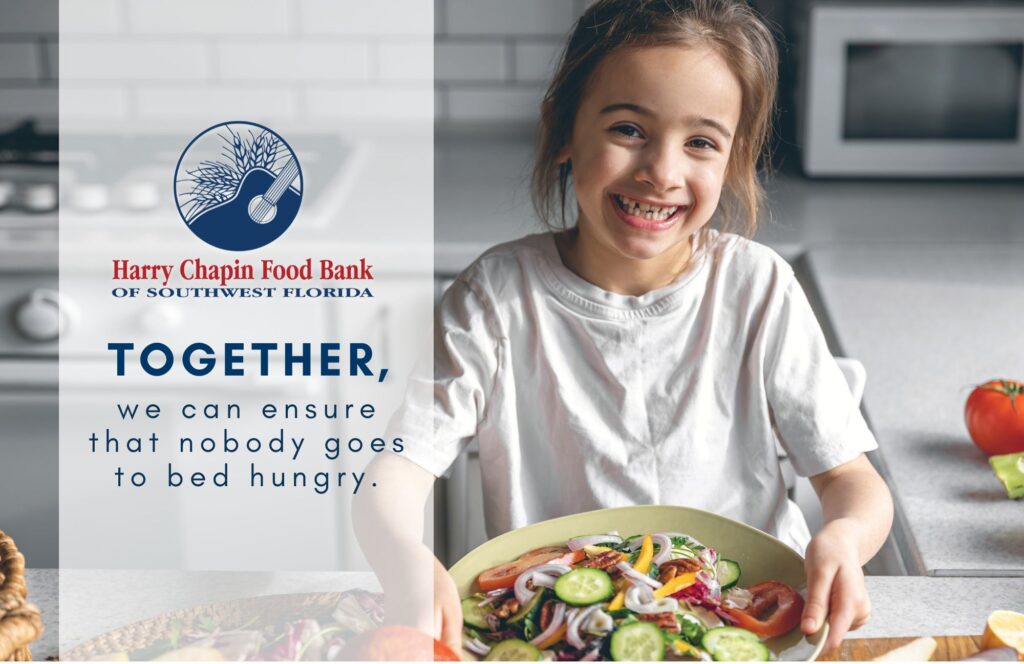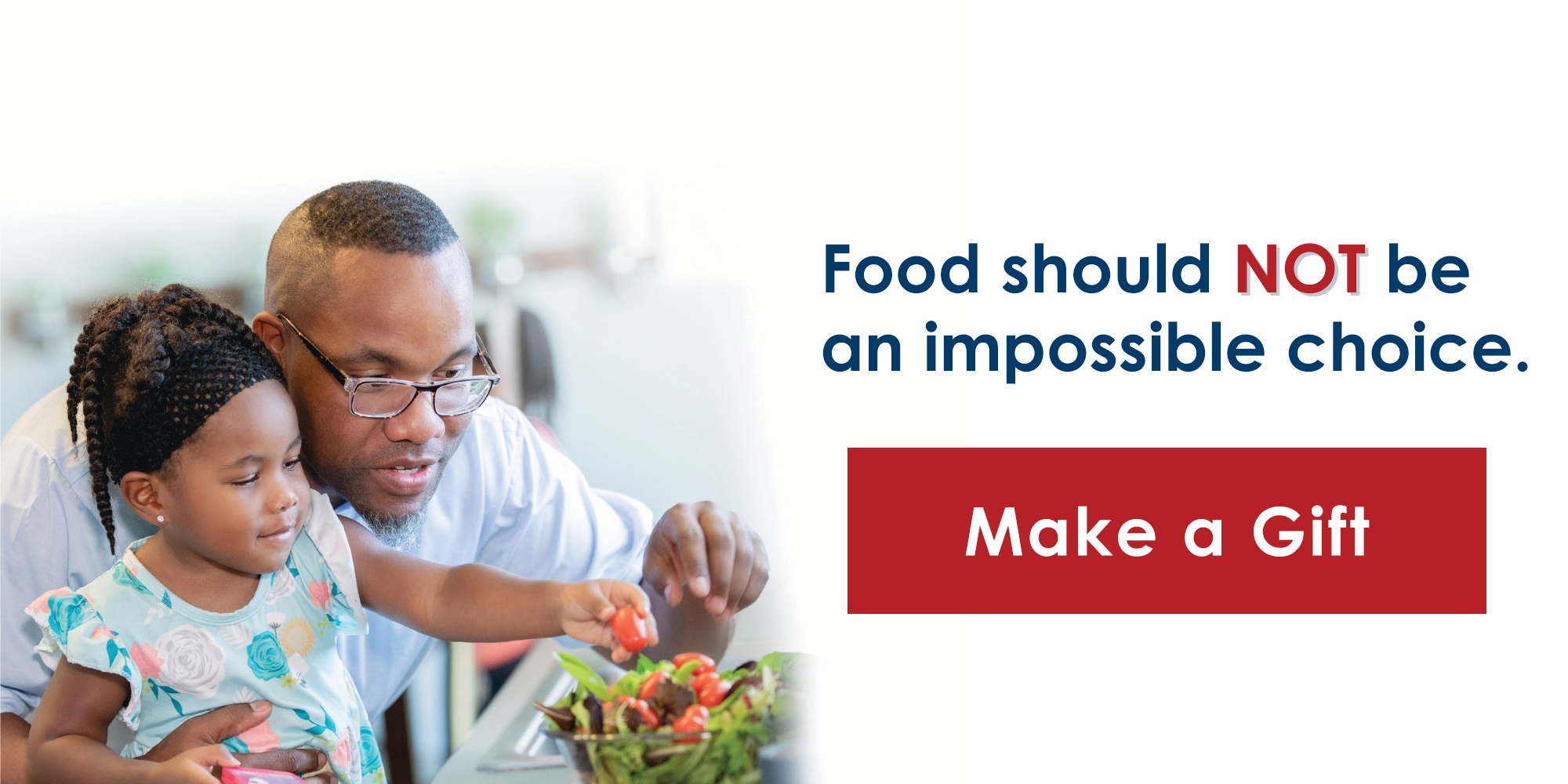Can I buy food for my family or pay this month’s rent? If I eat smaller portions, could I afford the electric bill? Do I skip a few meals to be able to pay for my child’s medication?
These are a few of the impossible choices that the people your food bank serves have to make every single day as they struggle with food insecurity. Food should NOT be an impossible choice. It’s hard to miss the ever-rising prices at the grocery store these days. Once affordable and nutritious options, such as eggs, are now out of reach for many families’ budgets, as they must also navigate sharp increases in rent, utilities and healthcare. Hurricane Ian only further compounded the problem. A shortage of affordable housing prior to the storm has exploded into a crisis, with expensive repairs and delayed insurance claims sadly becoming the norm across the area.
Our rural communities have the added challenge of physically acquiring food. For the majority of those living in Southwest Florida, simply running to the nearest grocery store is not an option…because there isn’t one. Nearly 70% of our five-county footprint is classified as a food desert — areas where people have limited access to healthy and affordable food, especially nutritious and fresh options such as fruits, vegetables, meats and dairy.
Erika Pacheco Franco lives in Immokalee, where the nearest major grocery store is 25 miles away. Above-average prices at the gas pump, combined with cost-of-living increases across our five-county footprint and stagnant wages make it challenging for families, including Erika’s, to travel that far for food. Despite Immokalee being a farming community that grows and harvests a substantial amount of produce, the logistics behind coordinating space, transportation and delivery are complicated and unfeasible. Erika’s husband works at a local farm; however, she finds it more and more difficult to provide meals for her family.
Erika’s son attends the Redlands Christian Migrant Association (RCMA) Community Child Development Center in Immokalee. The center not only offers Erika free childcare but also free food. RCMA is one of our Harry’s Helpings distribution sites, where children and their parents who are food-insecure can receive supplemental food kits to help them make ends meet. Erika says that the food kits are beneficial to her family because they contain a variety of nutritious, shelf-stable options such as spaghetti, rice and beans. By providing food in easily accessible and familiar locations to parents, Harry’s Helpings is one of the ways your food bank is removing one of the biggest barriers that families who live in rural communities face in acquiring food.
Your food bank is committed to leading every community we serve in Southwest Florida in the fight to end hunger. A local congregation in our community is stepping up and matching our belief that food is love by offering us The St. John’s Episcopal Church Challenge Grant in the amount of $124,000. We cannot achieve this goal without you. Your help will allow us to continue reaching those in need. When we raise the full challenge amount, your gift will go twice as far in providing food and love for families like Erika’s, so they can gather with smiles around full dining room tables.
Can we count on you to partner with us now by making a gift as we strive towards the $124,000 challenge grant goal? Together, we can ensure that nutritious food is distributed to all corners of our five-county footprint, so no one has to go to bed hungry.
P.S. Be counted today! Make your transformative gift with twice the impact through The St. John’s Episcopal Church Challenge Grant. Your support will provide hope for families who are hungry in our community.



